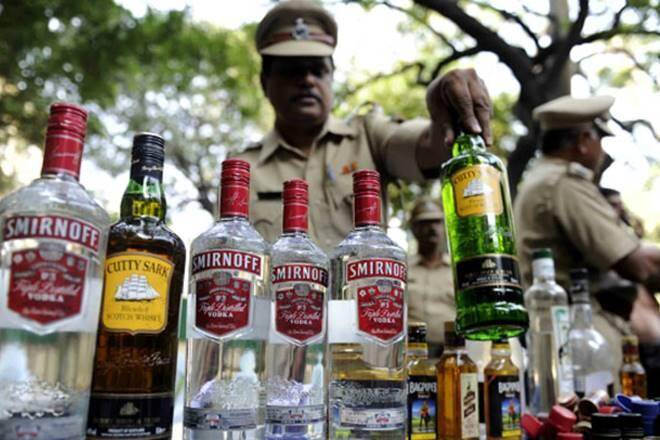Almost four years ago, the state of Bihar prohibited alcohol sale and consumption. But when any popular product is banned, it leads to the rise of the black market, thus, the liquor mafia. The unemployed youth and many students look for easy money through smuggling of liquor from neighbouring states.
Jitan Ram Majhi, the former CM of Bihar and leader of Hindustani Awam Morcha (HAM) which is of NDA, said that he will raise the issue of liquor prohibition with Nitish Kumar if NDA comes to power. In a talk with Aaj Tak, he said that poor people who consume alcohol are pushed in jails while the liquor mafias are earning thousands of crores through liquor smuggling. He further said that he will request Nitish Kumar to amend the liquor prohibition act if NDA comes to power.
आजतक से बोले जीतनराम मांझी – शराबबंदी क़ानून में संशोधन की करूंगा मांग #ATVideo #BiharChunav #BiharElections2020 (@chitraaum) pic.twitter.com/0qH77FfpLc
— AajTak (@aajtak) October 22, 2020
Manjhi has raised the issue of prohibition many times previously and is now making it an election issue in the assembly elections, because, most of the people locked up in jails for liquor consumption are poor and backward.
“I do not know whether the man was drunk or not. But let us stop making a big fuss about liquor consumption. Daaru (alcohol) sometimes also serves as dawa (medicine). I have the first-hand experience. A concoction saved me when I was afflicted by cholera long back,” he told reporters in February this year.
“A few drinks serve as sanjivni for a working-class person who returns home after a day of back-breaking labour,” the HAM chief said.
The prohibition on liquor has given rise to many Abdul Latifs- the infamous bootlegger from Gujarat on whom the movie Raees is based- who are earning thousands of crores through smuggling. The thousands of crores they earn further goes into illegal and criminal activities leading to a vicious cycle. So, thousands of crores which could have gone to state coffers and honest businessman’s pocket- which would lead to the welfare of the poor and economic growth of the state- is now in the pocket of Bihar’s own Abdul Latif and would lead to rising of crime and additional burden on the criminal justice system in the low capacity state.
Moreover, consumption of spurious liquor leads to death of many people every month. Since the prohibition was imposed four years ago, hundreds of people died due to consumption of desi liquor or overconcentrated industrial liquor.
As per the report by Firstpost, given the lack of opportunities in private as well as the public sector, unemployed youth- unemployment rate in Bihar is in double digits- in the state are getting in the business of bootlegging. Ajit (name changed), 26, a political science graduate, says he has been on a job hunt since 2013. “There is lack of vacancies in the government sector and not enough opportunities in the private sector either,” he says. Five of his friends nod in agreement.
“After Nitish Kumar banned alcohol, a man who earlier ran a licensed liquor shop asked me to join him. I initially worked for him as he sold alcohol illegally. Shortly, I became a distributor myself. That is the journey for everybody sitting here,” he adds.
Thanks to Jitan Ram Manjhi, prohibition is becoming an election issue because it led to a revenue loss of 4,000-5,000 crore to the state as well as massive job losses in the tourism and hospitality industry of the state.
To save the state from the rise of gangsters like Abdul Latif, the prohibition must become an election issue because only then any party which comes to power would think of amendment in the liquor prohibition act.
The liquor ban is putting extra burden on weak judicial infrastructure as more than 2 lakh cases related to illegal liquor consumption have piled up in various courts of the state. Patna High Court slammed Nitish Kumar government for banning liquor without creating adequate legal infrastructure to deal with the law.
Therefore, lifting the ban on alcohol sale and consumption would not only earn thousands of crores for the state of Bihar but also ease the burden on judicial infrastructure, hence, leading to economic growth. Whichever government comes to power after the results are declared in the second week of the next month, must mull over lifting the prohibition.
